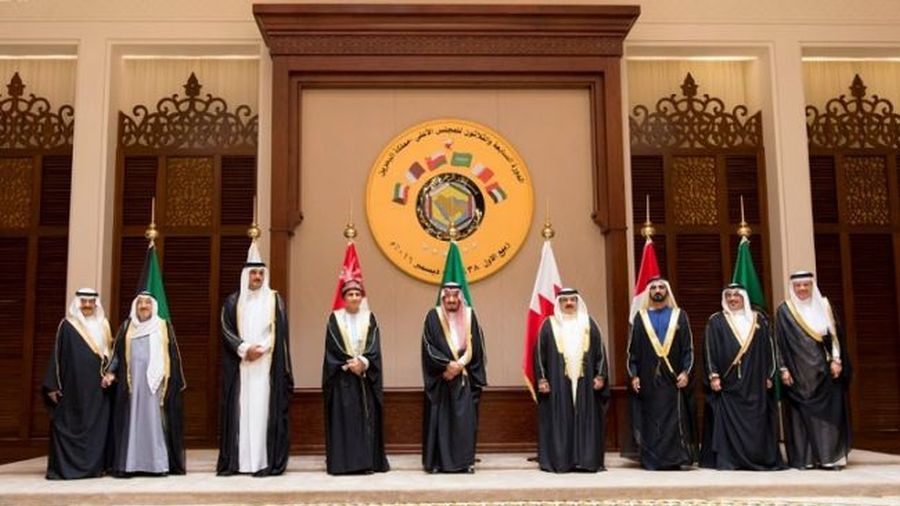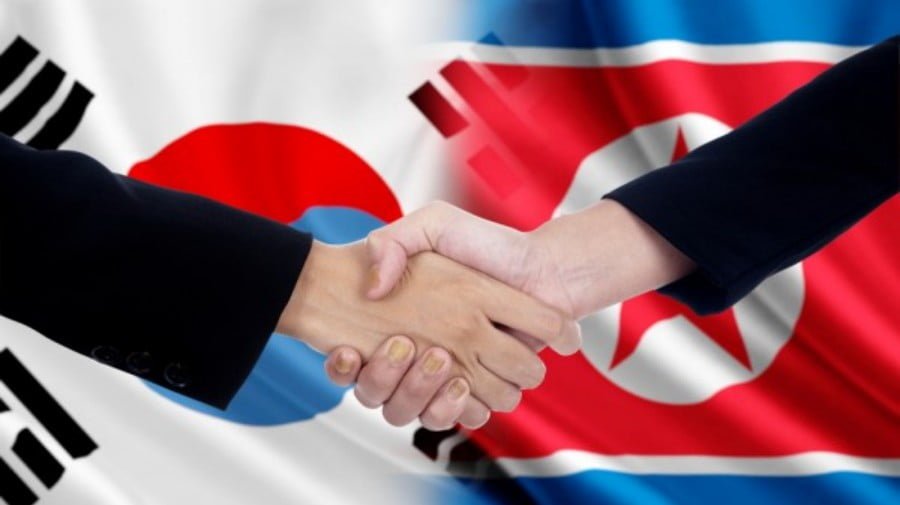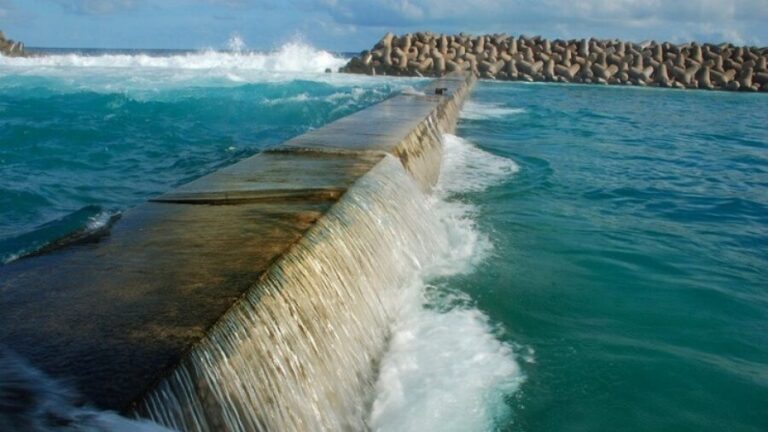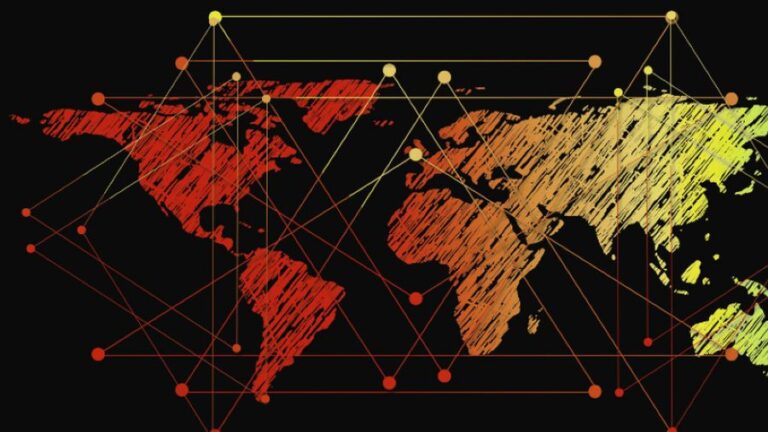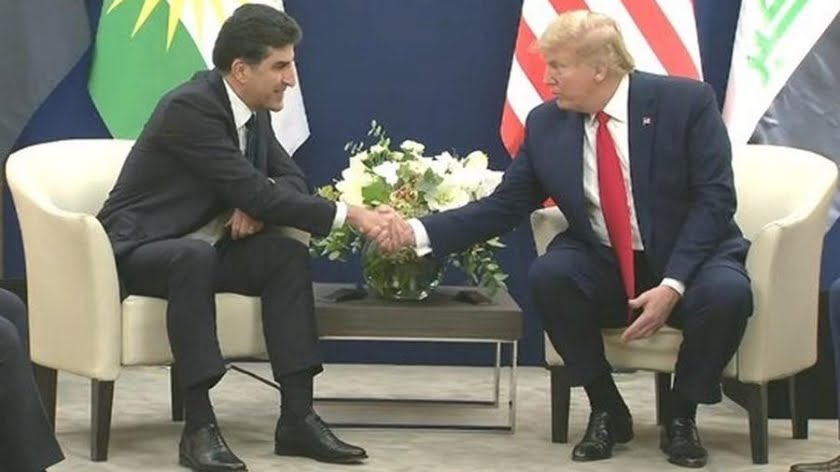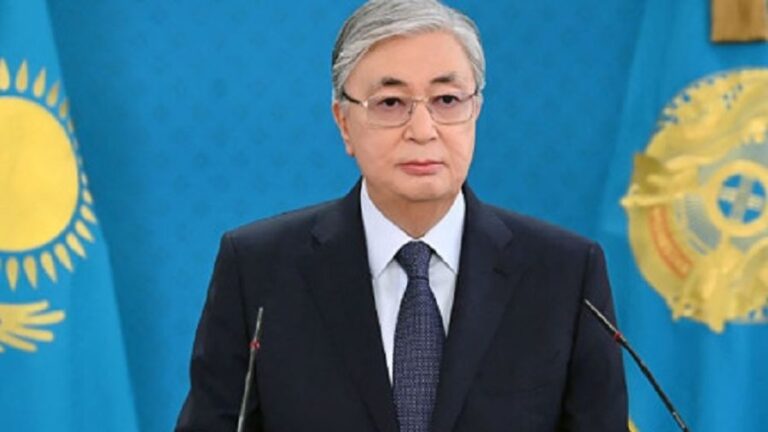Partition, Regime Change, and Geopolitical Rivalry: What does 2023 Hold for the Middle East?
As the year of 2022 comes to an end, the usual spate of predictions for the incoming year are espoused by many. That includes, it seems, Russia’s Security Council Deputy Chairman Dmitry Medvedev, who predicted on Twitter – either mockingly or seriously, or perhaps both – a number of world-altering events in 2023 such as the breakout of civil war in the United States, the disintegration of the European Union, the establishment of a “Fourth Reich” which will partition Europe, the collapse of the global financial system, and the shifting of international markets from the Western world to Asia.
Putting aside such drastic predictions for now, some of which are certainly plausible and others which seem to stem from the dreams of a Russian ultranationalist, some epoch-making events have already taken place this year, clear examples being the Russian invasion of Ukraine and the decline of American influence in the Gulf region signalled by the widened rift between the US and Saudi Arabia.
These events are still picking up friction and we may see them and a myriad of other developments progress or regress throughout the course of 2023.
No crystal ball predictions for the upcoming year can be made here, but the following are merely hotspots to closely observe based on analyses of ongoing current affairs throughout the Middle East – affairs which will not end anytime soon, and which are far from being resolved.
Last chance for Libyan unity?
Despite the promise of elections which followed the Libyan ceasefire in 2020, the divide between the country’s two rival administrations is still going strong. The “upcoming elections” have not yet taken place, and the bodies and figures responsible for their setup have failed to deliver, primarily due to that ongoing national divide and subsequent disagreements.
Not only has the democratic process been stalled, but a gradual return to conflict has been emerging, with rival militias clashing in Tripoli after forces from eastern Libya travelled to and infiltrated the capital.
As a direct result of the political crisis caused by the Libyan parliament in the east appointing Fathi Bashagha as the new prime minister and the current premier Abdul Hamid Debeibeh refusing to step down until elections are held, those clashes have only signalled the fragility of the current peace and the ease in which the situation can regress back into civil war.
While the United Nations has urged for the establishment of elections, to the agreement of all political sides, the eastern Libyan strongman Khalifa Haftar last week warned that this will be the “final opportunity” for an attempt at the process.
Without openly mentioning the launch of a renewed offensive on western Libya, Haftar’s warning is interpreted by many as a veiled threat to again use military force to attempt to unite the country under his leadership. If that is not the case, however, there is a potential alternative: separation of the country and two rival governments.
Prior to his speech on Libya’s Independence Day, in which he gave that warning, there were rumours circulating amongst political and journalistic circles that Haftar was set to officially announce the secession of eastern Libya and the establishment of a new state. Those rumours turned out to be false, of course, but there is a very real possibility that existing separatist calls could gain traction and even support in 2023 if the elections again fail to take place and the current political impasse worsens.
A challenge to Erdogan as Turkiye turns 100?
With most of the events pertaining to the construction of this current world order – the carving of entire nations, the restructuring of the global financial system and removal of the gold standard, the rise of the US and fall of the Soviet Union amongst them – having taken place late during the last century, not many dates can yet be called centenaries. 2023 will be one of the first of this century, marking the 100th birthday of the modern Turkish Republic.
Turkiye has experienced much since its creation on the ruins of the Ottoman empire a century ago, evolving from a rigidly secular western-facing republic embarking on a series of drastic cultural and linguistic reforms to a revived regional power, projecting relatively hegemonic influence and wielding a more confident and independent foreign policy.
Not all has been well, though, with an economic crisis rocking the country over the past few years and the ongoing presence of millions of refugees from the Syrian conflict continuing to stir up social unrest and subsequent ultranationalist sentiment.
Approval ratings for President Recep Tayyip Erdogan were at some of their lowest around this time a year ago, according to opinion polls, and despite gradual increases in his popularity over the course of the year and his efforts to appeal to voters, there remains widespread discontent amongst much of the Turkish populace who look forward to a change in course.
That change may have a chance in 2023, with the general election set to take place in June during the country’s centenary, marking the most critical election in Turkish history yet.
The last thing Erdogan and his ruling Justice and Development Party (AKP) needed at such a time was an opportunity for the opposition parties and candidates to unite in a common cause, but that is exactly what they may have done. The sentencing of Istanbul Mayor Ekrem Imamoglu this month to over two years in prison and a political ban has led many to believe that it will ignite a united opposition against Erdogan at the election.
Although Imamoglu – believed to be the most popular candidate for opposition groups to unite behind – has been banned from politics, it was exactly that move against Erdogan himself a little over two decades ago that boosted the current president’s popularity and led him to where he is today. Could this be the downfall of Erdogan which many have prophesied and lusted over?
Despite the risks the Imamoglu ban and the various crises troubling Turkiye may pose, Erdogan still represents a significant challenge to the opposition, with the AKP itself still ranking the highest in current polls and maintaining its alliance with the Nationalist Movement Party (MHP). The MHP has declined in the rankings since the last election, but both parties together could still dominate, especially if the opposition remains in disarray.
There is also the issue of the Turkish government’s ‘Vision 2023’, a set of ambitious aims it announced last decade. The progress of that will certainly be evaluated ahead of and during the election, adding to just how critical 2023 will be for the AKP’s survival and for Turkiye’s modern history generally.
Deepening rivalry between Turkiye and Iran
Since the renewed conflict fought between Azerbaijan and Armenia over the Nagorno-Karabakh region, a widening rivalry between Turkiye and Iran has only grown. While Ankara supported Baku in the war, providing its drones and military assistance, Tehran secretly backed Yerevan by quietly transferring arms to it and making moves to harass Azerbaijani forces in the aftermath of their victory.
Iran’s support for Armenia is an obvious and expected policy, not only as an attempt to quash nationalist sentiments amongst its Azeri population in north-western Iran, but primarily because it is within Tehran’s geopolitical interests to counter Baku, and it is in Turkiye’s own to back Azerbaijan as a buffer against those Iranian aims.
One key example is the issue surrounding the Zangezur corridor, an Armenian strip of territory separating mainland Azerbaijan and its autonomous region of Nakhichevan. Both Ankara and Baku want to establish and extend a transport route running from the Azerbaijani capital to the Turkish city of Kars, with the route passing through the edge of the Zangezur corridor.
Its proponents insist that such a project would open up many economic opportunities and long-term peace for the South Caucasus region, and that it will serve as the shortest land transport route between the Pacific and Atlantic oceans, as well as a new connection between Asia and Europe.
For Turkiye, it will certainly be a significant benefit, serving as a gateway to the Caspian Sea and as a quick route to the Central Asian states, which are themselves seeking an additional route to access Europe amid the ongoing war in Ukraine. It is apparently so important that Ankara has made it a key condition for the normalisation of its relations with Yerevan.
Meanwhile, Tehran continues to largely oppose it as it would directly link Turkiye to mainland Azerbaijan, Azerbaijanis would no longer need to pass through Iran to travel to Nakhchivan, and the Iranian-Armenian border would be blocked due to the route running through its full length. Worst of all for Iran, though, would be the fact that it would be a significant geopolitical stride for Turkiye and would boost its influence in the south Caucasus.
That, together with the existing clashes of difference between Turkish-backed forces and Iranian-backed groups in Syria, is set to deepen the rivalry, and while it does not mean military conflict between Ankara and Tehran, it could mean the greater formation in axes of influence led by the two regional powers.

